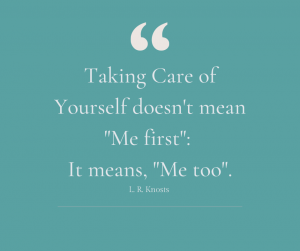Do you feel selfish by caring for yourself?
If the answer is yes, read on to understand the difference. Self-care and being selfish are entirely different concepts that often need clarification. Both involve focusing on one’s needs and desires. Yet, selfishness and self-care differ significantly in their purpose and effects on others.
Definition of Selfishness
Selfishness is when a person only thinks about themselves and their interests without regard for the feelings or needs of others. A selfish person may prioritise their wants and desires over the well-being of others, which can lead to conflict and resentment in relationships.
Selfishness often involves taking advantage of others to satisfy one’s own needs. A selfish person will lack the ability to compromise and view the situation from the perspective of another.
An example is when one partner insists on a beach holiday, knowing that their partner prefers to have a holiday that involves some sightseeing. This is an example of selfishness that may lead to feelings of resentment, which can be damaging to relationships.
Definition of Self-Care
Self -care involves engaging in activities and behaviours that help you relax, recharge, and rejuvenate your mind and body. Self-care involves setting boundaries, so you only expend some energy caring for yourself and is essential to maintain mental, physical and emotional well-being.
Many of us are uncomfortable with the idea of taking time for ourselves. We are used to taking care of everyone else. It’s a significant shift to focus on ourselves as it can feel counter-intuitive, as we tell ourselves that it’s wrong for us to put our needs first.
If we do, we often feel guilty about doing something wrong. Unfortunately, many people spend so much time and energy looking after the needs of others that they often need to recognise that they have needs.
But the reality is that we can’t run on empty. We only have limited resources to operate, so taking care of ourselves isn’t a matter of selfishness. Ensuring we meet our needs makes us more able to support others with compassion and care rather than resentment and exhaustion.
Setting aside time to properly care for our mental, physical, emotional, or spiritual needs is not selfish. On the contrary, creating time for proper self-care is a selfless act. It’s an essential part of maintaining optimum physical and mental health. As a result, you have more to give yourself and people, projects and work you care about.
Self-care isn’t selfish, and it’s not unimportant or trivial. It’s not just about taking spa days or candle-lit bubble baths (although these are acts of self-care). It’s about taking personal responsibility for protecting your emotional and physical health. Some ways we can practice self-care…
- Setting Boundaries.

- Having enough sleep, rest and food.
- Having regular breaks (no more desktop lunches)
- Doing things that you find enjoyable.
- Spending time with people who you enjoy being with.
- Exercise that you find pleasurable.
- Time doing absolutely nothing.
Melanie Beattie, in her book Codependent No More: How to Stop Controlling Others and Start Caring for Yourself, describes self-care as “As an attitude toward ourselves and our lives that says, I am responsible for myself… I am responsible for what I give and receive… I am responsible for how much I enjoy life and how much pleasure I find in daily activities… My decisions will consider my responsibilities to myself”.
Self-care and selfishness may involve prioritising one’s needs and desires. Still, they have vastly different effects on oneself and others. Self-care helps to promote a healthy and positive relationship with oneself and others. At the same time, selfishness can lead to toxic and damaging relationships.
When you take care of yourself, you are more able to handle the challenges of everyday life and support others. You also set an example for others to prioritise their self-care, which can lead to a more positive and healthy community.
What changes do you need in your life to incorporate your needs for self-care?
Beattie, M. (1992) Codependent No More: How to Stop Controlling Others and Start Caring for Yourself. Minnesota: Hazelden.


